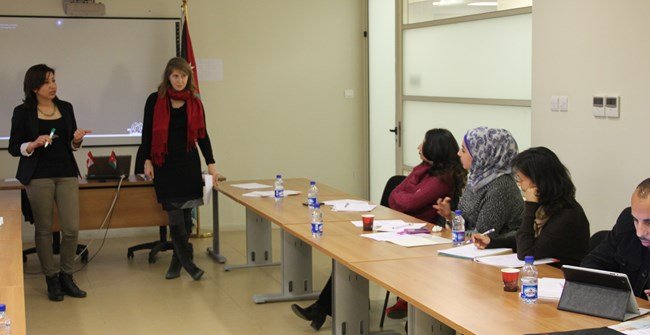Image:

17 Feb 2014
<div>Monday February 17<sup>th</sup> 2014</div>
<div><br />
A training workshop titled “Rights Media and Human Rights Coverage” concluded at the Jordan Media Institute (JMI). The workshop was organized by JMI in collaboration with Journalists for Human Rights (JHR), Canada's leading media development organization, and funded by the Canadian Embassy in Amman.</div>
<div> </div>
<div><br />
During the conclusion of the workshop, Mr. Bruno Saccomani, the Canadian Ambassador to Jordan, delivered a speech stressing the role of training programmes in developing and building journalists’ capacities. He urged the participants to embrace this course and its goals with enthusiasm and responsibility. Mr. Saccomani also explained that in a free and fair society, we look to the media to report on human rights issues, because it has the voice and the audience. “Respect for human rights is the bedrock of a free and fair, transparent and democratic society” he added.</div>
<div><br />
The 2-day workshop included several topics focusing on the importance of Rights Media in creating healthy societies, as it is an effective tool of communication between citizens and decision makers.<br />
<br />
Ms. Rachel Pulfer, the executive director of JHR, provided a definition for “Rights Media”, explaining that it is a process of writing, collecting, editing, producing and distributing media that creates societal dialogue on human rights issues.<br />
<br />
During the workshop which was attended by journalists from different media organizations, Ms. Pulfer presented JHR’s “PANEL” methodology including the following five elements: participation, accountability, non-discrimination, empowerment and linkage to Human Rights.<br />
<br />
The workshop explained the relationship between citizen journalism, social media and Rights Media, looking at examples of social media covering important issues, and how it can be used to broaden the coverage of Human Rights via professional media outlets. It also addressed the potential risks of relying too heavily on social media, and the way to mitigate its effects.<br />
<br />
On the other hand, the workshop included practical exercises and case studies’ analysis, such as causal and role analysis, and a case study on how to work and interact with non-profit organizations (NGOs) to get the necessary information and data. It further covered planning a story and designing a reporting plan, which was presented and discussed at the end of the workshop.<br />
<br />
In addition, the participants examined how citizen journalism can help in the production of Rights Media, and reviewed the difference between citizen journalism, advocacy and professional journalism.<br />
</div>



